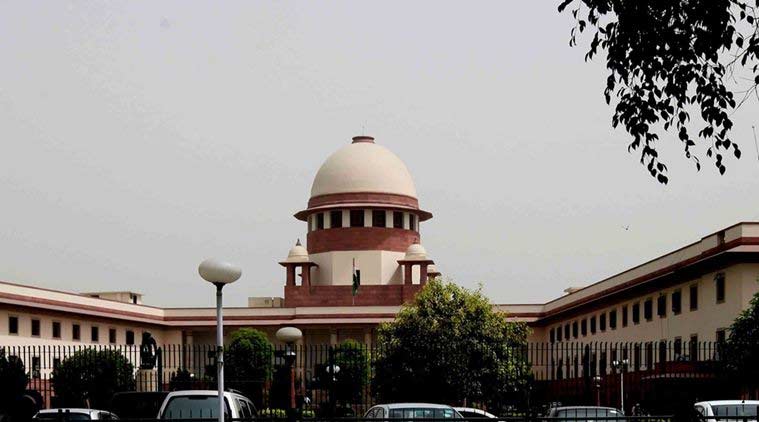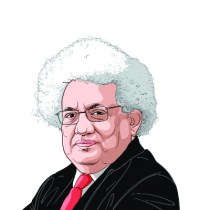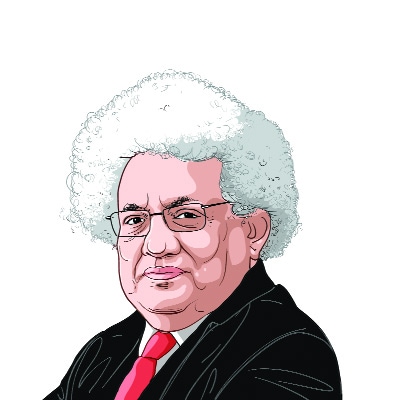SC ruled that someone from outside a state is not eligible to claim reservation granted by the state
Out of my Mind: A grave danger
While the Supreme Court came through with flying colours with its verdict on Section 377, it did something in the week before which has hardly been remarked upon.

Supreme Court of India. (File)
The Supreme Court has struck a blow for freedom and equality by getting rid of 377 which was a peculiarly horrid Victorian law making people live false lives. There is nothing in Indian culture, no matter how far back you go, which disapproved of, let alone criminalised homosexuality. We need to examine the Indian Penal Code line by line and bring it in line with 21st century values of dignity and mutual respect across all identities that people may adopt. The Victorian, colonial State that we inherited but never fully rejected needs to be removed from lives of all Indians.
But while the Supreme Court came through with flying colours in this case, it did something in the week before which has hardly been remarked upon. The Court ruled that someone from outside a state is not eligible to claim reservation granted by the state. When a state grants reservations they are only for ‘citizens’ of the state and not outsiders. This strikes a crippling blow at the idea of a single citizenship for all Indians. No matter whether ‘insiders’ or ‘outsiders’, Indians should be free to live and work and enjoy reservations they qualify for, all across India.
The Honourable Supreme Court’s decision means that only the upper castes who are not entitled to reservations (and the non-Hindus) are able to enjoy the rights of mobility across India without paying a cost. Reservations are a handicap for the ‘reserved’ if granted by the state and not the Centre. In other words, state reservations are not open to all Indians.
This is a very serious matter with long-run consequences that could change the nature of the Indian Union. The conduct of the NRC in Assam has already raised the notion that to live, work and vote in Assam you have to show you were born in Assam (speaking Assamese an advantage) or you have proof of long residence. It is obvious that to conduct NRC is to qualify and reduce the idea of an all Indian citizenship. The new judgment drives another nail in the rights of OBC citizens.
It would be easy to be complacent. What do us lay people know about the higher intricacies of the Constitution and why not just let the Supreme Court deal with it. But the idea implicit in the judgment is that state reservations are for state ‘citizens’ and not ‘outsiders’. The next step will be to extend that to all government jobs. A few years ago Rahul Gandhi decried the UP government (obviously non-Congress because Congress has not been in power for a couple of decades in UP) for the fact that young people from UP had migrated to Maharashtra for jobs. Where were UP jobs for UP boys? The Shiv Sena agrees with him. Why are these outsiders coming from UP and taking away jobs from ‘our’ people?
Jawaharlal Nehru opposed the creation of linguistic states, because he was worried about Balkanisation, but was defeated. The economic stagnation of the first 40 years and the patchy employment creation during the next 30 have elevated reservations for government jobs as a panacea. State governments have used reservations to meet any and all demands. Now with the Supreme Court judgment, Nehru’s fears of Balkanisation look prescient.
For all the latest Opinion News, download Indian Express App
More From Meghnad Desai
- Out of my mind: Time running outBeing against Modi is not a Manifesto. If India has a low score on human development, if Muslims are a severely economically and socially deprived…
- Out of my Mind: Red Fort readyWhen the Prime Minister spoke last year from the Red Fort, he seemed invincible. It was as if 2019 was in the bag. But the…
- Out of my mind: The man who changed Indian politicsNo one expected him to be so engaged in improving relations with Pakistan when he was foreign minister. As a Jana Sanghi, he was meant…








































No hay comentarios:
Publicar un comentario